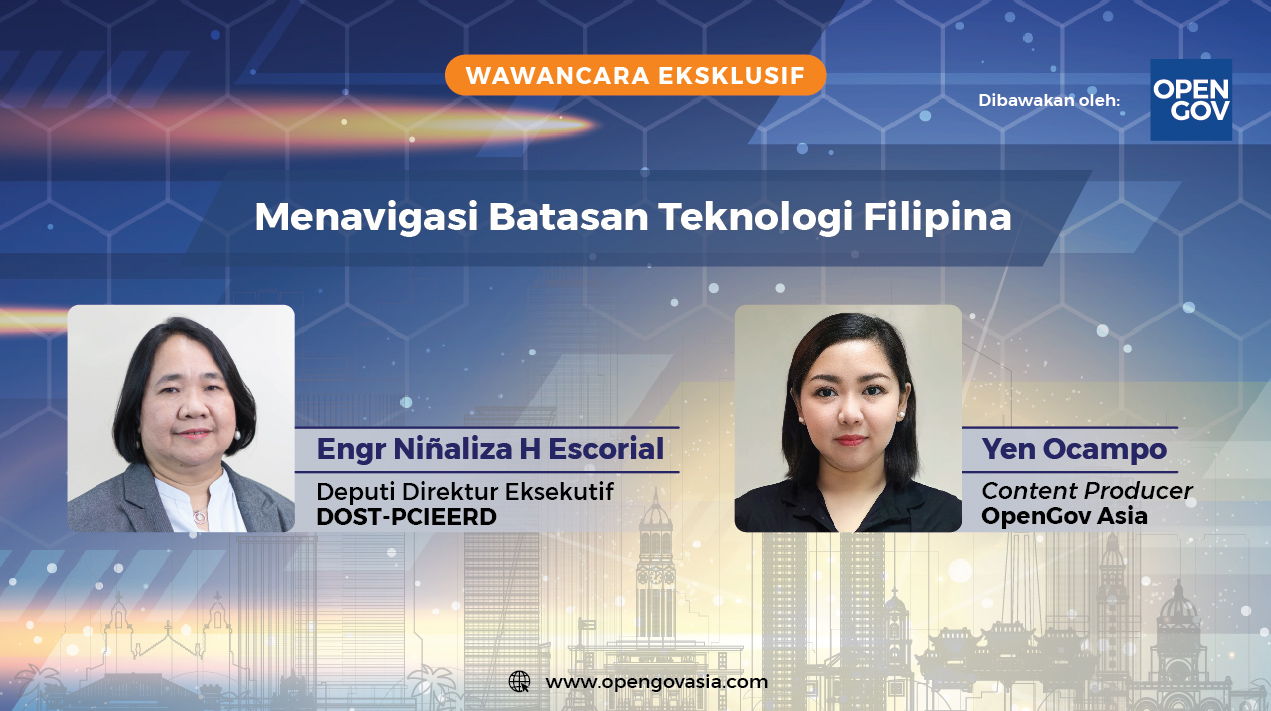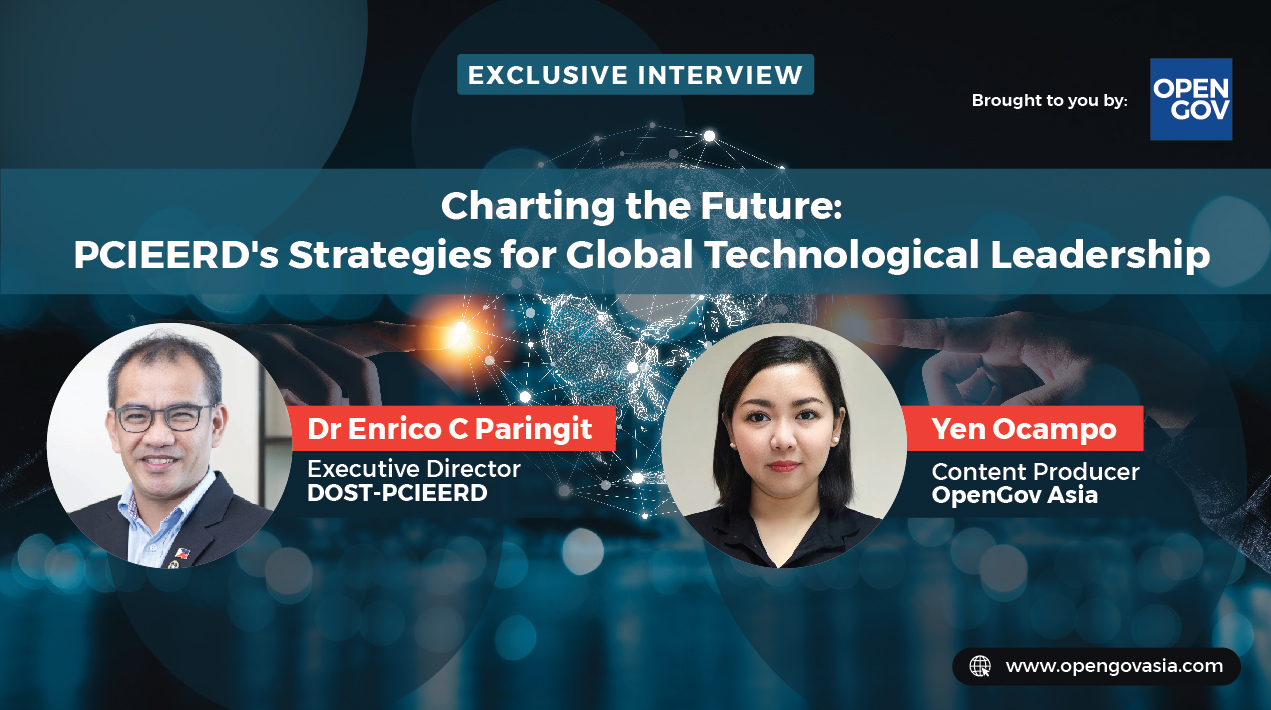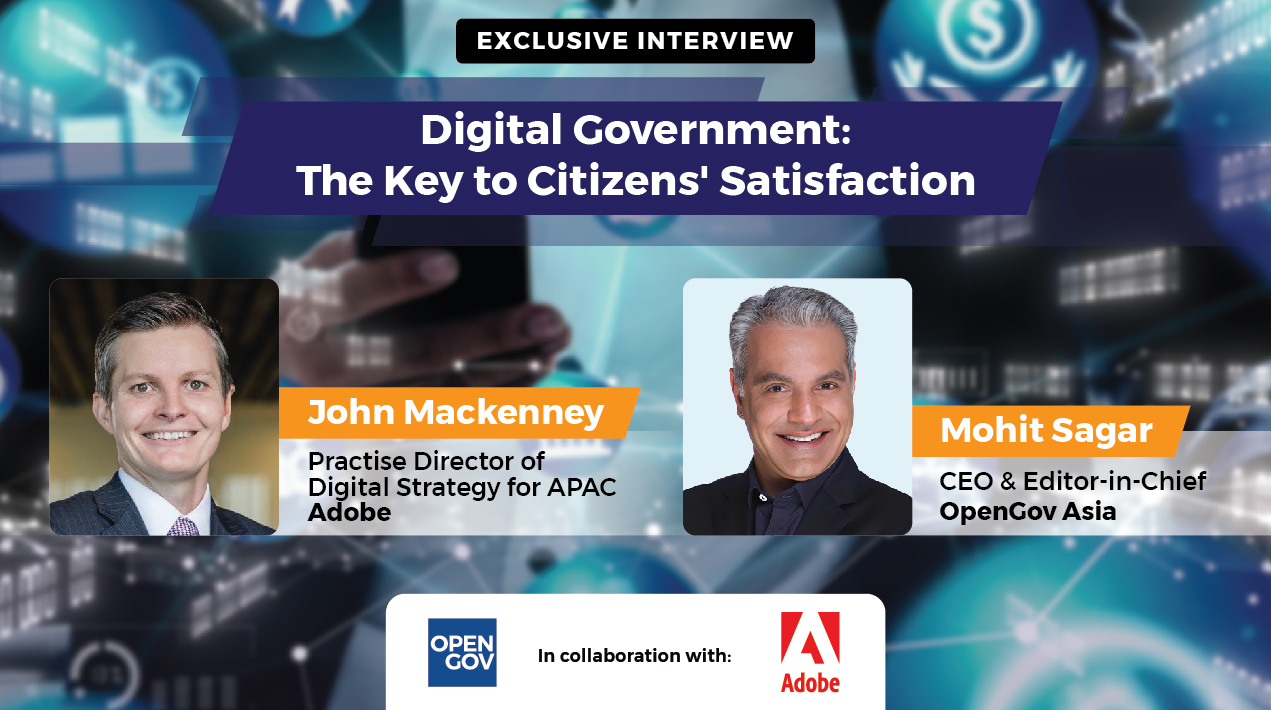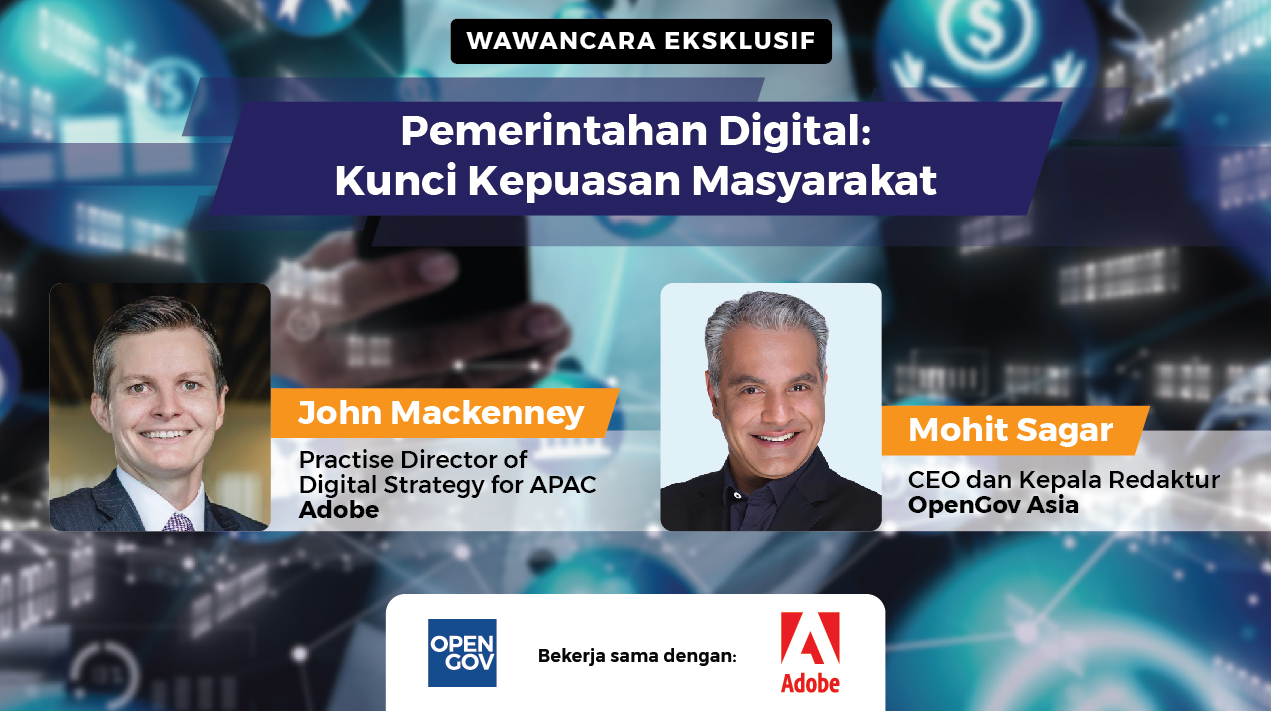
Good citizen experience is one of the most essential components of an effective government. Unfortunately, it is still a far cry from the seamless, personalised engagements that citizens have and expect from the private sector. Getting information or accessing services from government agencies online continues to be a tedious process and often remains a frustrating experience in most countries. And whilst many governments are prioritising improvement in the way they engage with their customers, bureaucratic processes and outdated policies can often stymie good intentions.
The public sector must shift to citizen-centric digital offerings, with an effective strategy to deliver private sector level digital services. As reported by OpenGov Asia in the exclusive interview with John Mackenney, Principal Digital Strategist, APAC, Adobe, John believes that the strategy for personalisation goes further in government than private sectors. Government has the responsibility of equity – to make sure everyone has access to what is needed and ensure that no one is left behind within society.
To implement these strategies and plans, effective policies must be put in place that support and facilitate government objectives. Currently, misaligned policies, obsolete culture and a lack of leadership often hinder the public sector’s desire for meaningful transformation. That is why Adobe is helping governments update their policies, promote a citizen-centric culture, and encourage forward-thinking leadership as part of their long-term strategy.
Adobe is helping revolutionise public sector agencies through cutting-edge digital transactions because it recognises that great citizen experiences have the power to inspire, transform and revitalise agencies. Such experiences also engender trust and compliance on the part of citizens, just as it does in the private sector. Adobe connects content and data, introduces new technologies that democratise creativity, shape the next generation of storytelling and inspire entirely new business categories.
 OpenGov Asia had the opportunity to speak exclusively to Jennifer Mulveny, Director of Government Relations, Asia-Pacific at Adobe on this topic.
OpenGov Asia had the opportunity to speak exclusively to Jennifer Mulveny, Director of Government Relations, Asia-Pacific at Adobe on this topic.
Jennifer oversees all public policy issues that impact Adobe’s business in the Asia-Pacific region, including data, international trade, privacy, cybersecurity and intellectual property. She has held several advisory roles within government and business, specialising in international trade and technology policy matters. She currently co-chairs the special interest group on public policy for the Australia Information Industry Association (AIIA).
On the purpose of policies, Jennifer explained that they are designed to support outcomes that improve lives by providing products, services and ultimately help mitigate negative situations. Jennifer divided policies into two categories – policies that prioritise the needs and convenience of citizens and those that facilitate a governments ability to operate as efficiently as possible.
Companies can work to influence policies that advance their own business or facilitate their customers to improve their business. Companies often promote policies that benefit an entire industry or ecosystem, or initiatives that are simply good for the community. Policy strategy can also be more reactionary as companies or associations seek to improve existing well-intended policies, but often the details are hard to implement.
To help governments understand what policies to change or update, Adobe first looks to get a comprehensive understanding of what the government is prioritising based on their goals and electoral pledges. Delivering on mandates and promises is essential – and policymakers recognise that building trust from citizens is more critical now than ever.
Adobe works to increase trust between citizens and governments by creating meaningful and dependable online engagements. Providing the tools needed to delight citizens, whether it is online or an in-person transaction. Consolidating hundreds of citizen-facing government websites with irrelevant information that are hard to navigate into a few personalised, interactive sites with meaningful and streamlined content.
To do this effectively, a strong leader in government has to promote policies that incentivise agencies to put the citizen first by consolidating websites, updating outdated content and digitising paper forms. In 2018 the United States Congress did this with support from the White House by passing the 21st Century IDEA Act, which aims to improve government customers’ digital experience and reinforce existing requirements for federal public websites.
As a result of this policy, US agencies are complying by turning paper forms into digital interactions, enabling digital signatures, modernising websites and overhauling portals for citizens to communicate more efficiently with public officials.
In Australia, a law will soon be passed that promotes the sharing of non-sensitive citizen data between agencies so that that information can be consolidated into a “single view of the citizen” to streamline applications and other processes.
Certain policies can be appropriate for a particular time and place, but as society evolves, some policies will be obsolete. Adobe either recognises several things that need to change or probes the government to find out what they would like to improve regarding citizen engagement. Technologies can assist the public sector to major issues such as improving healthcare and protecting the environment.
Adobe’s research on citizen engagement shows that while people often look for information on a government website, they often do not find the necessary information – or it is a long, convoluted process and they often give up and look elsewhere. This can be easily measured by the time a citizen spends on a site and ultimately turns to a call centre to answer an inquiry often costing governments significant resources. Governments must invest in making the online citizen experience more convenient and intuitive.
An effective policy that facilitates a better citizen experience is one that gives agencies the ability to move data between government agencies. In Australia, sharing citizen data between agencies is an arduous process and one that dissuades agencies from transferring and sharing necessary data. This is why a citizen can often be asked several times for their name, date of birth and address when they have multiple transactions. The Australian government is introducing a policy that makes sharing data across platforms far easier.
Another example is a policy surrounding an electronic or digital signature that got updated out of necessity during the COVID-19 pandemic.
On the global scale, Jennifer opined that the US 21st Century Integrated Digital Experience Act (IDEA) is the best example of a policy that improves the citizen experience. The policy sets a threshold for all government agencies to create and consolidate better website experiences. As a result, many U.S. agencies are stepping up to meet the threshold. Notably, the U.S. Census Bureau launched a mobile app for the first time and the U.S. Department of Energy has digitised paper forms.
Jennifer touched on the topic of how to measure policy success which is not always easy. Objectively measuring the effectiveness of a policy is difficult as each government agency has different Key Performance Indicators (KPIs). However, in general, a “citizen first” policy can be considered successful if it can be demonstrably shown to reduce costs and save time for citizens or public servants. Adobe conducted a study in Australia that showed an improved digital experience could save Australians about 2 days a year. In addition, she notes that success is in creating a more enjoyable environment and culture for citizens.
Jennifer is passionate about advocating citizen-centric policies that prioritise citizens’ needs by creating personalised experiences instead of reactionary-based policies. To create such policies, the public sector needs to obtain and analyse citizen data to make informed decisions, but this does not need to be personal data. Even minimal information that the government can glean from citizens that do not sign into a website, such as their general geographic location and search terms can be insightful.
To help the public sector improve citizen experience, Adobe systematically analyses the obstacles that impede agency aspirations. Categorising the level of difficulty of each obstacle and prioritising which problem to solve first.
Jennifer conceded that one of the most difficult hurdles to overcome is culture. Strong leadership and a genuine team approach for a successful outcome are required to make a significant transformation in citizen experiences.
For example, consolidating citizen-facing engagements such as tax returns, passport applications, social services and license applications into one portal will require buy-in from the agencies that have oversight across those services. Public servants may initially be reluctant to move out of their comfort zone which is why good policy, such as data sharing initiatives can help bolster these initiatives.
Emphasising the significance of partnerships, Jennifer is convinced that there should be a strong relationship between the public and private sectors when it comes to digital transformation. Collaboration between the public and private sectors is the best way to produce new solutions and policies that best serve citizens.
By collaborating with the public sector, Adobe has gained unparalleled insights about government goals and in exchange, the public service gains new skills and global experience from companies that have invested heavily in their products to deliver best-in-breed services.
Jennifer believes many policies, such as allowing agencies to share a certain level of non-sensitive citizen data to create “one view of the citizen” is essential to creating a better experience. She supports non-partisan global policy think tanks that make recommendations of what technology policies governments should adopt based on the economy and demographics. It is essential for both large and small, domestic and foreign-based companies to advocate for policies that mutually provide private sector growth and public sector trust.





















